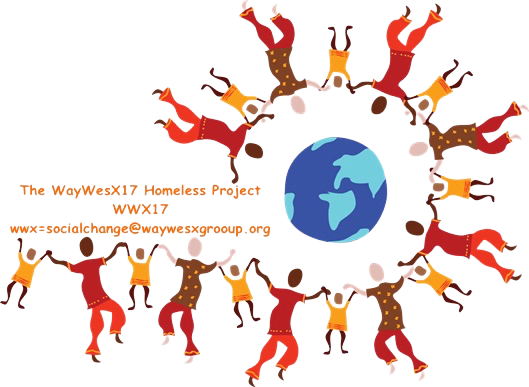
Let's Talk About Grief & Homelessness...

Let’s Talk About a Loss of Identity and Detachment from Reality… 09.11.24
Paraprofessional participants in this study revealed that many of the homeless appear to have a loss of identity and detachment from reality. Living with a sense of false reality may seem like a source of safety. According to Janoff-Bulman (1992) tragic disruption in our basic assumptions of benevolence in the world can destroy our sense of security and safety. Shattered assumptions affect “our expectations about our world, our relationships, and our place in it are thrown in disarray” (Mallon, 2008, p. 6). Although individuals may desire to change their negative mindsets and avoid self-sabotaging behaviors, this has become a way of life for many. P12 shared the experience of one of their homeless clients,
So, I became homeless, and I am living in an abandoned restaurant. When I wake up in the morning, the first thing I think is, ok, I’m going to get out of this situation. I’m going to get housed, and I’m going to be productive. I’m going to go back to my life as it was one time. I go out in the day and try to find a job. I try to find resources and services; instead, it does not work. I ended up back in the abandoned building at night. So, I say to myself, you have two options. You either like being homeless or killing yourself.
The repeated failures of securing housing and employment may take their toll, and after a while, the self-sabotaging behaviors can even become comfortable and familiar. It can appear that this can lead to the burden of a loss of purpose, direction, and personal significance. When there is no hope or purpose, individuals may go on, merely existing. For the homeless, this detachment may devolve into self-imposed seclusion, addiction, or mental illness. The traumatic experiences can appear to become who they are instead of what has happened to them.
The absence of a close social network may trigger negative self-hood, low self-esteem, or personal insignificance. The collapse of personal safety nets and family support systems further isolates the homeless (Calvo & Carbonell, 2018). Many people who are living on the streets and in uninhabitable buildings did not choose to be homeless. The associated stigma of being homeless may often prevent the homeless from seeking help. Several paraprofessionals proposed that society’s distorted perceptions and rejection of the homeless could foster a culture of shame. According to Janoff-Bulman (1992), “The effect that negative events have on the three inherent assumptions of overall benevolence of the world, meaningfulness of the world, and self-worth” (p. 6) impacts the ability to process trauma and influences self-isolation.
Family, I know this was a lot of information to digest. Let's think about it and meet here again next week. Until then, do what you can to make the world a better place in which we all must live!
Dr. Cynthia B. Brown MSW
Get in Touch
**ALL ORDERS WILL BE FILLED WITH NEXT MONTHS' DISTRIBUTION**This is a local monthly program open to anyone in need of FREE diapers, pull-ups & wipes. WWX17 will also have Adult diapers. You must be able to pick up your diapers at a designed time and place. Use the form below to send us: Your Name, Email Address, Phone Number, Who Referred You, Number of Children, Diaper Size, Pull-Up Size, Adult Pull-Up Size
